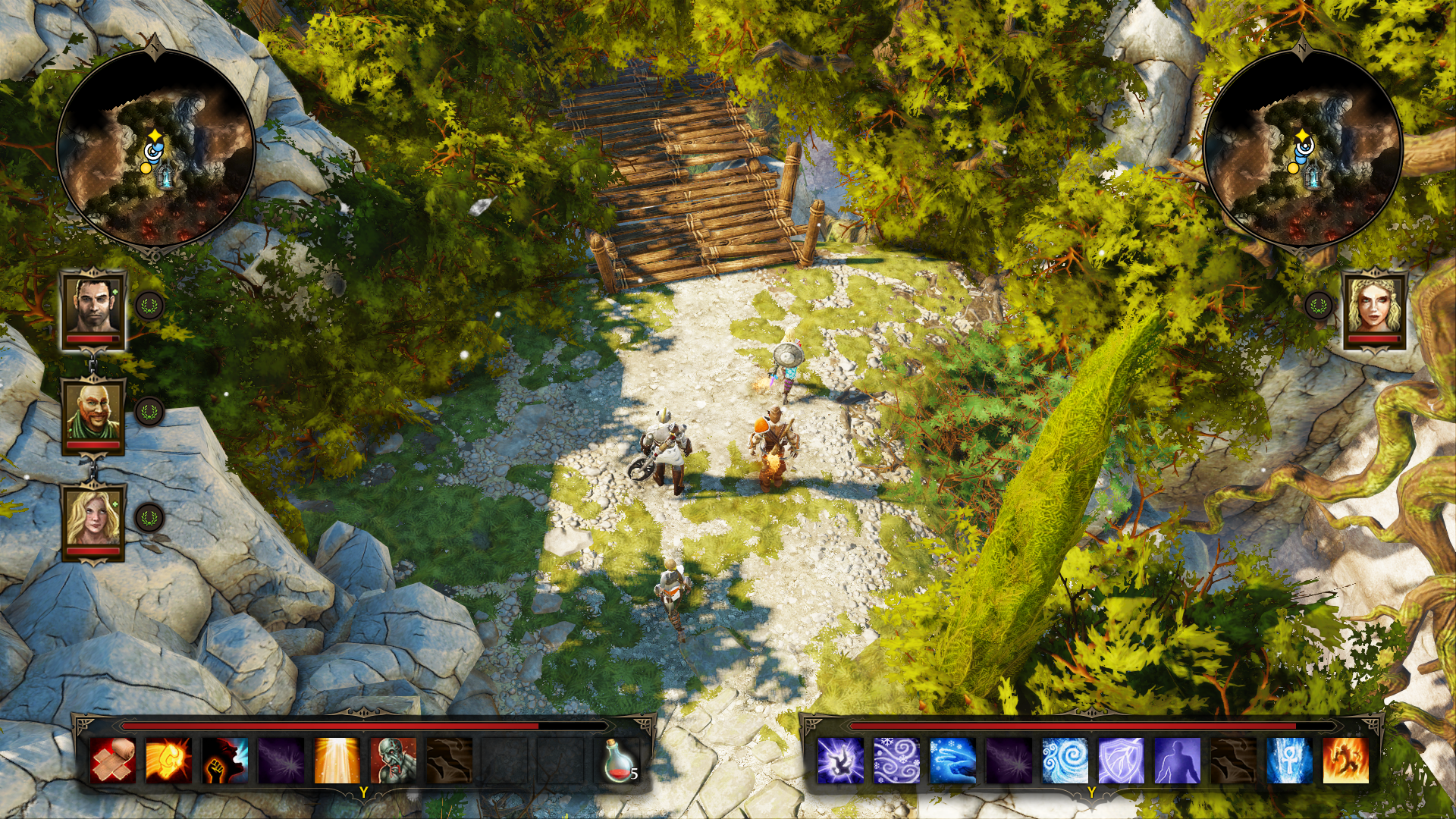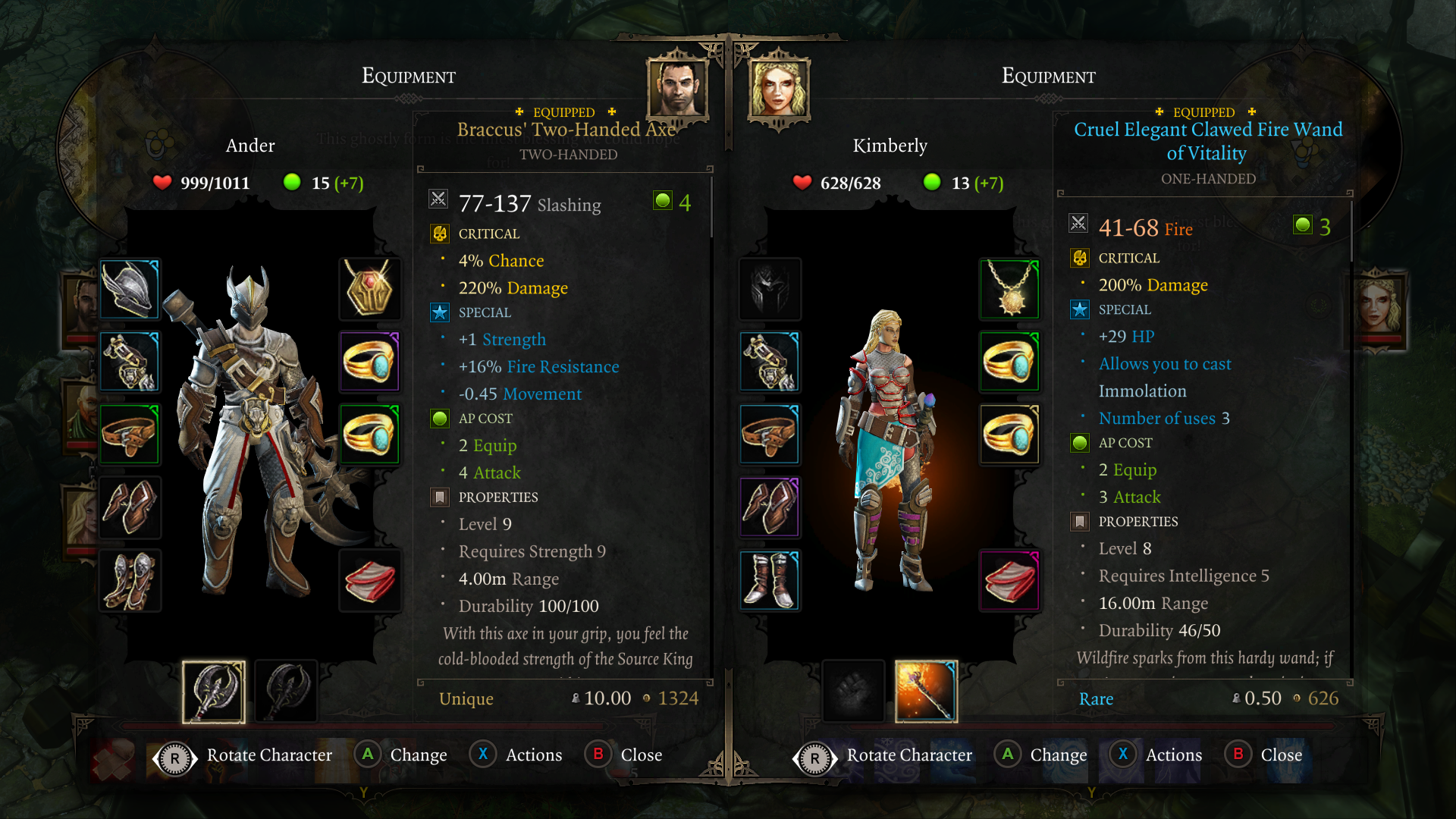Divinity: Original Sin review
There’s a lot to celebrate about Divinity: Original Sin. The title came out of nowhere, sweeping through the RPG corner of the industry. Almost 20,000 people rallied together to kickstart the game, helping Larian Studios build a classic RPG for a modern audience. The developers’ pitch felt wildly optimistic: deep cooperative integration; a reactive world; a dungeon editor for players to create their own adventures.
And they pulled it off.
As a franchise, Divinity has existed for a decade. Larian Studios worked hard to establish the realm of Rivellon, and Original Sin felt like an evolution of everything that came before it. As a result, Original Sin made enough of a splash to hit a mainstream audience and give new life to the Divinity games.
The game has solid worldbuilding, with hilarious writing and voice acting that constantly surprised me. While the main story bounced between “average” and “interesting,” the setting buoyed my experience. The quest log is a clunky and unfriendly mess, but there’s something about just being in this world that compelled me forward.
(Asnd the game introduced me to my new favorite game song, “Bittersweet Regrets.”)
Fortunately, the character stories hit all the right marks, whether that’s over-the-top crazy or exceedingly mysterious or bizarrely eclectic. This—combined with the writing and acting—brings the world of Rivellon to life. The characters may not deliver the depth you’ll find in other big RPGs, but they’re charming and refreshing. And that’s the best summary of what Divinity: Original Sin does well. The game applies a new coat of paint to the RPG formula, and those nuances set it apart from the competition.
You and me
A key part of the game’s design is online and splitscreen co-op. (My wife played RuneScape back in middle school, so I mostly got Original Sin for us to try together. Her addiction became the the main reason we played almost every day.) Adding another player enhances the character interactions, the power struggle within the “party dynamics,” and the adventuring elements.
Divinity: Original Sin invites players to try weird things, which helps the game stand apart from other RPGs. Within the first few hours, we had several, “Oh, that’s fun!” moments. One of my wife’s fireballs caught the edge of an oil spill and incinerated everyone inside, including someone we were supposed to help. Later, my knight threw a water barrel onto a fire, allowing us to safely pass into a blocked-off zone. And, my wife learned a skill that let her communicate with creatures...and helped us solve multiple quest threads.
These are only a few of the most memorable times. The game rewards thinking outside the box to solve puzzles, advance quests, and add humor; this concept became increasingly important as we progressed further into the game. Our individual ideas transformed every turn-based (and often time-consuming) battle into something unique to our characters, companions, skills, and equipment.
However, it’s important to talk about the difficulty. We hit multiple points where we couldn’t further a quest because we were underleveled. Or where we couldn’t explore because we were underleveled. Or where none of our side quests could be accomplished without going to a higher leveled area. Given the adventuring nature of Original Sin, this “stonewalled” feeling drove us away from the game for weeks and even months at a time.
Truth be told
My biggest issue can be summarized in one statement: Divinity is never very forthcoming about direction. The game is a fun take on blending isometric cRPGs with modern developments, but it suffers from the flaws of both sides of that coin. A lack of information can lead to realizing your chosen skillset locks you out of an important quest. That, in turn, leads to spending hours on random side missions to level up skills the game failed to tell you that you needed in the first place.
Oddly enough, this sentiment is all too common. My Reddit research indicates that many players (maybe most players) burnt out quickly, walking away from the game for weeks at a time. But coming back to it seems to spark a renewed passion—after giving it a second try, players tend to fall head over heels in love with Original Sin.
As far as other complains, I have two. First, Original Sin crashed in everysingle boss fight. There wasn’t one big battle that I didn’t have the pleasure of replaying at least three times. And yes, that includes crashes during or after landing a killing blow to end the encounter.
Second, health never refills outside of combat and regenerative spells have long reload times (and don’t reset if you happen to stumble into a new encounter). We spent 2-3 minutes after every fight healing the party. It’s an odd oversight given the game’s difficulty, and an issue that’s been dealt with in lots of creative ways over the past decade of RPGs.
In a nutshell
In many ways, Divinity: Original Sin feels like an amalgamation of its contemporaries. At times, it feels like Pillars of Eternity with the humor of Fable. (And yes, there’s a distinct European personality in the writing.) Other times, it blurs the lines between Diablo and an MMO. I think the closest clear-cut comparison I can make is if the team behind Kingdoms of Amalur: Reckoning decided to make an isometric cRPG in a revamped D&D setting, but included turn-based combat and loot-grinding and… Okay, you know what, maybe there really is no perfect comparison after all.
RPGs are unique beasts, but Divinity: Original Sin might be worth exploring if you played Pillars of Eternity or Kingdoms of Amalur.
Pros
+ Endearing world
+ Thoughtful design
+ Co-op implementation
Cons
- Scaled difficulty
- Game stability
- Health management



